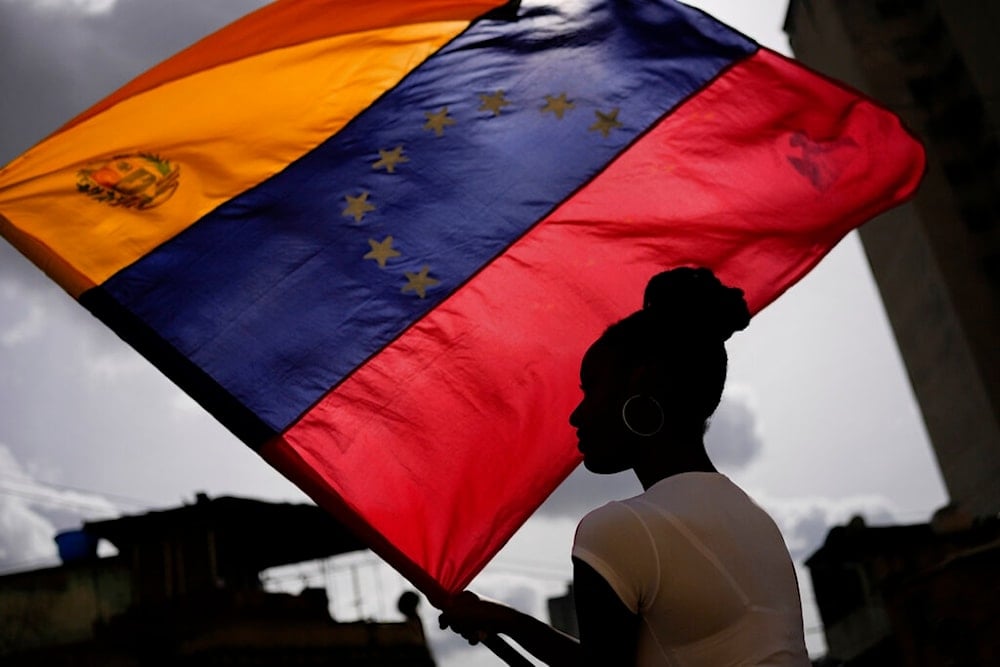EU extends sanctions on Venezuela until 2026
The sanctions include freezing the assets of the listed individuals, banning them from receiving funds, and prohibiting their travel to EU member states.
-

A woman holds a Venezuelan flag during the Saint John the Baptist feast in the San Agustin neighborhood of Caracas, Venezuela, Friday, June 24, 2022. (AP Photo/Matias Delacroix)
On Friday, the Council of the European Union announced the extension of its sanctions against Venezuela for another year, citing ongoing concerns over alleged democracy and human rights violations. The restrictive measures will now remain in effect until January 10, 2026.
"The Council has decided to prolong the restrictive measures in view of the situation in Venezuela for a further year, until 10 January 2026," the statement read.
As part of this decision, 15 additional individuals have been sanctioned, including members of Venezuela's National Electoral Council (CNE), judiciary, and security forces, for their alleged involvement in undermining democratic processes and violating human rights. This brings the total number of sanctioned individuals to 69.
The sanctions include freezing the assets of the listed individuals, banning them from receiving funds, and prohibiting their travel to EU member states.
Read more: Canada sanctions Venezuelan officials over Maduro's election win
In July 2024, the CNE announced Nicolas Maduro as the winner with 52% of the votes, but the results were met with rejection from the opposition, the US, the EU, and several Latin American countries, which called on Venezuelan authorities to publish the election data.
The opposition contends that its own tally of polling station results showed González Urrutia, 74, securing more than two-thirds of the votes, though they failed to provide evidence before the courts to substantiate their claims.
The CNE, however, remains distrustful of European countries, citing past incidents where the Western-backed opposition was accused of orchestrating multiple assassination attempts on President Maduro, further straining relations with the EU and the US.
Venezuela's plight amid ongoing sanctions
The country has for years suffered severely from Western sanctions, which have caused several economic hardships, including hyperinflation, shortages of essential goods, and a sharp decline in living standards for its population.
Earlier in 2024, Venezuela made a hopeful bid to join the BRICS organization in an effort to gain some relief from sanctions.
However, during the last BRICS summit held in Kazan, Russia, Venezuela's application was vetoed, notably by Brazil, citing a "breach of confidence," as explained by Brazilian President Lula's senior advisor and former foreign minister, Celso Amorim.
The news of the veto came as a big shock for Caracas, after which the country's Attorney General Tarek William Saab accused Lula of faking an accident to sidestep a crucial BRICS summit so that Brazil's veto could come into force.
Saab said "direct sources" informed him that Lula staged his accident as a calculated excuse to avoid the summit, thereby facilitating Brazil's veto against Venezuela's BRICS membership bid.
Read more: Venezuela accuses Lula of staging accident to justify BRICS veto

 3 Min Read
3 Min Read










